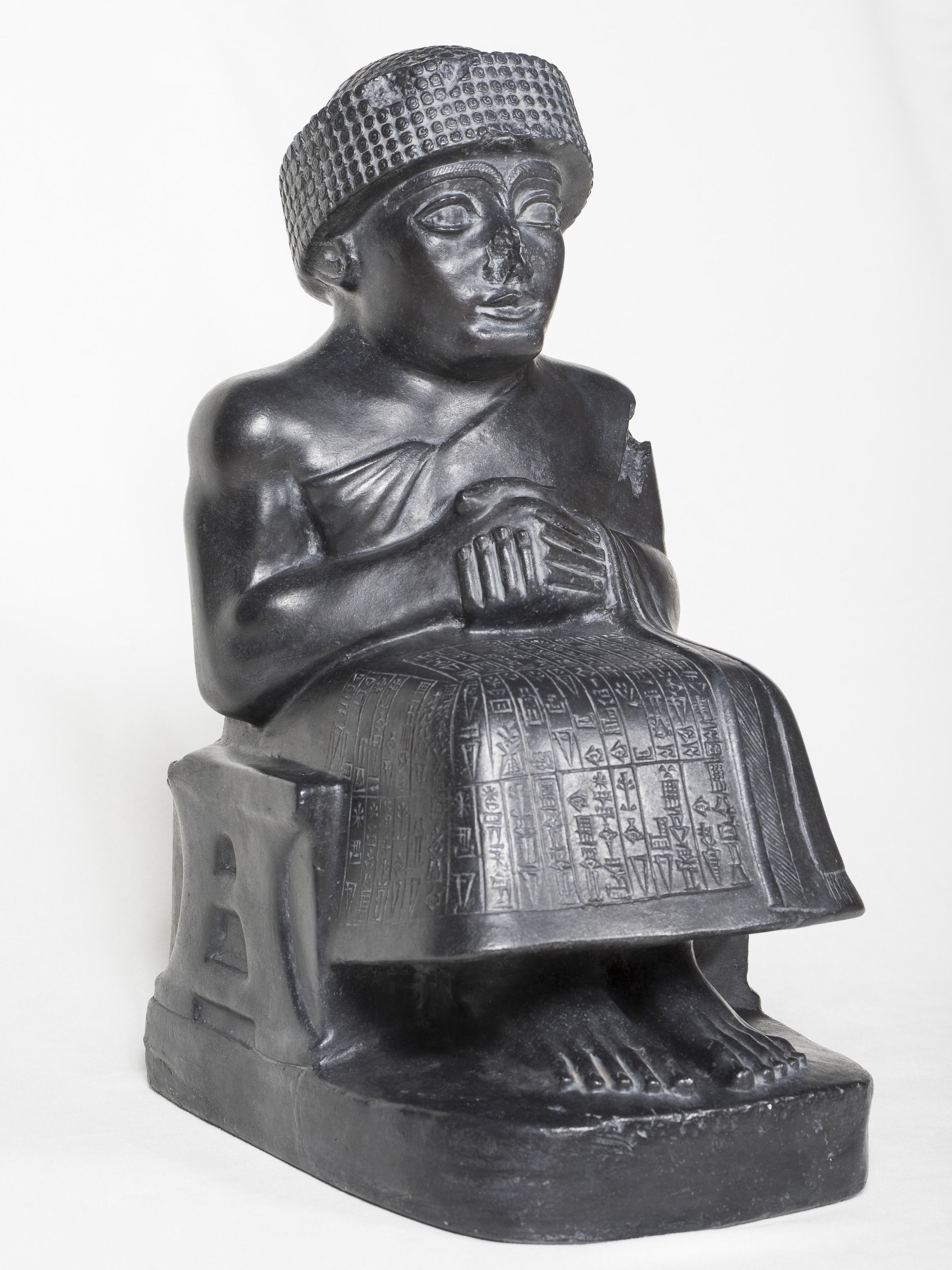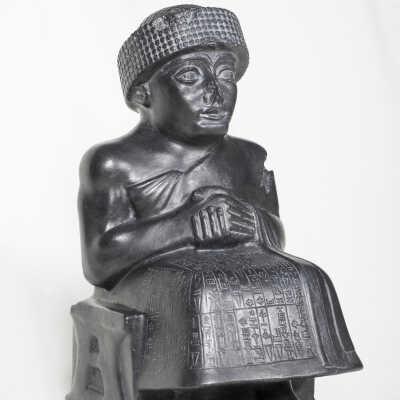Gudea, Prince of Lagash
Name/Title
Gudea, Prince of LagashEntry/Object ID
06NE13108Description
Gudea seated, wearing a turban with stylized curls, with hands joined in a symbol of piety. His clean-shaven face is calm and smiling; large, fishbone-like eyebrows arch above his almond-shaped eyes. Here he is depicted wearing the royal tuban and an Akkadian draped/fringed robe, inscribed with cuneiform, which leaves one muscular arm uncovered.Type of Sculpture
StatueArtwork Details
Medium
PlasterContext
This statue of Gudea, prince of the independent kingdom of Lagash, was one of some twenty-seven statues of Gudea that survive, which attests to the importance and piety of this early Mesopotamian king. Gudea was the ensi (governor) of the Sumerian city-state of Lagash from 2144 to 2124 BCE. He also wielded a considerable amount of influence in other parts of Mesopotamia. In the foundations of a temple to Ningirsu (a war god) he buried a number of clay tablets with cuneiform inscriptions. These tablets give accounts of his activities at the temple which communicate his feelings, moods, and dreams. Originally crafted from valuable diorite stone imported from Egypt, Gudea sits on a short throne facing forward with his hands clasped together in a gesture of piety. Gudea restored and built over a dozen temples to thank the gods of the kingdom of Lagash. Perhaps the most impressive feature of this representation of Gudea is the robe, which bears a detailed cuneiform inscription referring to Gudea’s devotion to the god Ningishzida, a deity of vegetation, especially trees, and of the underworldMade/Created
Date made
2125 BCE - 2120 BCETime Period
Bronze AgePlace
Site
TelloEthnography
Culture/Tribe
Near Eastern - Sumerian

